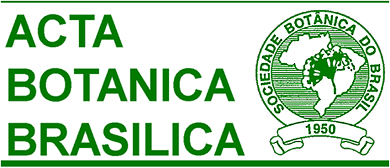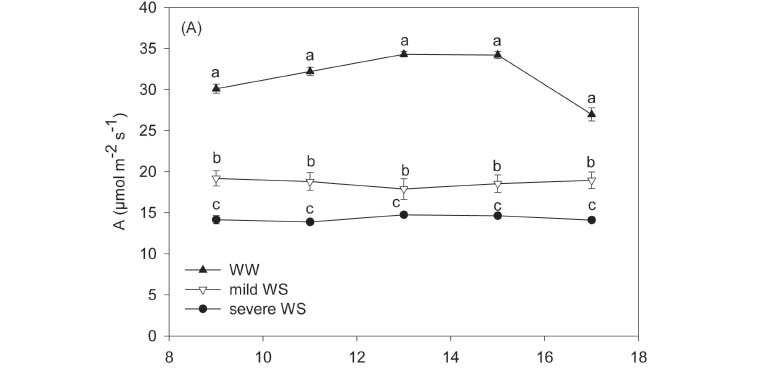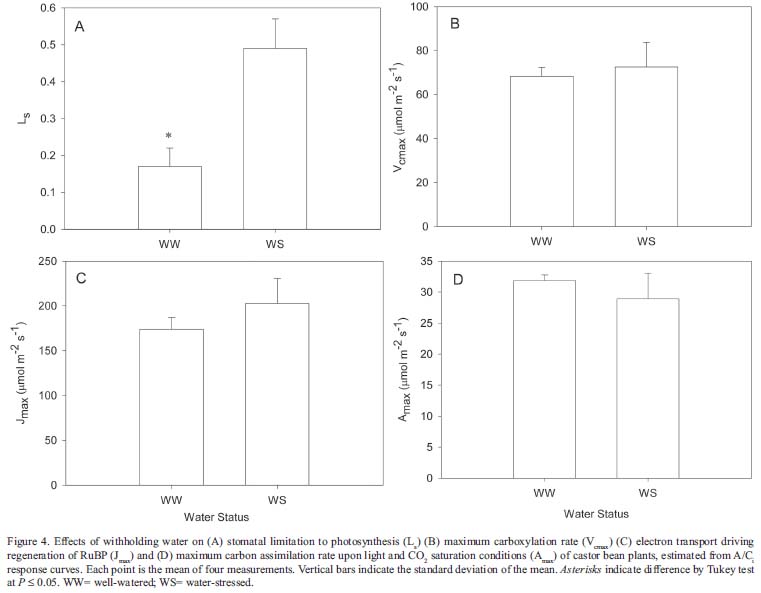Water availability may influence plant carbon gain and growth, with large impacts on plant yield. Ricinus communis (L.), a drought resistant species, is a crop with increasing economic importance in Brazil, due to its use in chemical industry and for the production of biofuels. Some of the mechanisms involved in this drought resistance were analyzed in this study by imposing progressive water stress to pot-grown plants under glasshouse conditions. Water withholding for 53 days decreased soil water gravimetric content and the leaf water potential. Plant growth was negatively and significantly reduced by increasing soil water deficits. With irrigation suspension, carbon assimilation and transpiration were reduced and remained mostly constant throughout the day. Analysis of A/Ci curves showed increased stomatal limitation, indicating that limitation imposed by stomatal closure is the main factor responsible for photosynthesis reduction. Carboxylation efficiency and electron transport rate were not affected by water stress up to 15 days after withholding water. Drought resistance of castor bean seems to be related to a pronounced, early growth response, an efficient stomatal control and the capacity to keep high net CO2 fixation rates under water stress conditions.
A/Ci curves; diurnal changes; photosynthesis; stomatal limitations; water stress








